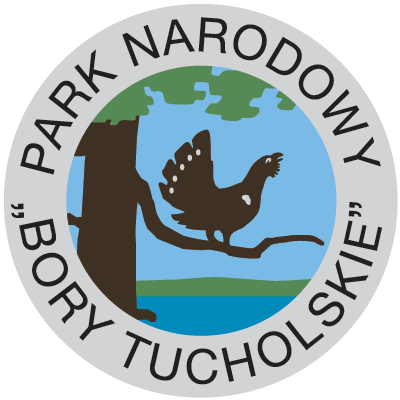Bory Tucholskie National Park was established on July the 1st, 1993. It is located in north-western part of Poland, Pomorskie Province. The area is 4 613,04ha. It covers north-western part of Bory Tucholskie, a big Forest Complex. It is located on the area of Chojnicki County in two municipalities: Chojnice and Brusy.
Little changed natural environment is a special feature of Bory Tucholskie National Park. The terrain was was formed by the last Baltic’s glaciation. Sandurs diversified with multiple high grounds, tunnel valleys and kettles are prevailing here.
Forests and lakes deserve special attention. Forests eco systems cover over 83% of the Park’s area. These are mostly fresh coniferous forests and dry with multiple species of lichen, as well as swamp habitats. The dominating species of the Park’s stand is a Pine (Pinus silvestris), but it’s the oak called “Bartuś”, that is the oldest tree in the Park.
Water eco-systems cover 11,5% of the Park’s area. There are 21 lakes in the Park. The most precious water bodies are oligotrophic lakes. Lobelia lakes deserve to be mentioned among oligotrophic lakes; there are eight such lakes in the Park. The special watercourse is the Seven Lakes Stream (Struga Siedmiu Jezior). This small river drains from the biggest Lake of the Park – Lake Ostrowite and disemboguing to Lake Charzykowskie.
The National Park "Bory Tucholskie" set 3 types of areas with different categories of protection:
- areas of strict protection – it is approx. 7% of the Park. These are well preserved ecosystems with a high degree of their unspoilt nature and resistance to degradation.
- areas of partial protection – it is approx. 91% of the Park. The habitats, that require action in the field of active protection, are under partial protection.
- areas of landscape protection – it is approx. 2% of the Park. In these areas business activities are allowed in a limited degree.
In the National Park "Bory Tucholskie" there are also set:
- protection zone of refuge, breeding sites and regular occurrence for protected species of birds, eg. for the white-tailed eagle and owl,
- protection zone of refuge and sites withs protected plant species, eg. for the floating water-plantain (Luronium natans)
Park area is a habitat willingly occupied by slime molds, fungi, lichens and vascular plants. In the case of lichens, they comprise of approx. 15% of Polish lichens; mosses represent approx. 22% and liverworts approx. 12% of the number of species in Poland. Vascular plants comprise of approx. 33% of the lowland flora.
At the mention deserve, ie .:
- among lichen: Cladonia Stellaris, Byroria implex, Byroria Vrangiana.
- among moss: the bog notchwort (Clapodiella fluitans), dicranum.
- Vascular plants: lobelia lake, lake quillwort, round-leaved sundew, spoonleaf sundew, and great sundew, Lycopodium and Diphasiastrum.
Fauna of the National Park "Bory Tucholskie" is represented by both vertebrates and invertebrates, whereas the first are much better known. Apart from the common mammals, ie. red deer, wild boar, you can meet also common shrew, pond bat. Among the birds, deserving special attention are ie. goldeneye, black woodpecker, bittern, whooper swan, White-Tailed Eagle and an owl. The Fauna of Park is being constantly discovered, almost every survey, inventory, monitoring carried out in the Park, allow to confirm the discovery of new species of animals.
There are three educational paths running through areas of the Park run with a total length of 16.4 km, as well as five hiking trails with a total length of 45.6 km and three mountain bike trails with a total length of 24.8 km, and one horse trail with a length of 5.4 km. The routes are a total length of 92.2 km. Such a large network of hiking trails and nature trails allows to know the natural diversity, valuable natural areas of the Park. Everyone can find something of interest, whether on foot or by bicycle, all hiking and nature trails are also available for cyclists.
You can collect edible mushrooms in the Park, which are not under species protection and berries from June 1st to October 31st , that are outside the areas of strict protection, animal refuges and forest crops up to 4 m in height.
Tourists, people collecting forest undergrowth and anglers from outside municipalities Brusy and Chojnice are obliged to purchase tickets to the Park.
Nature Education Centre National Park "Bory Tucholskie" is located in Chociński Mill and the educational offer is available on the website of the Park
www.pnbt.com.pl.
